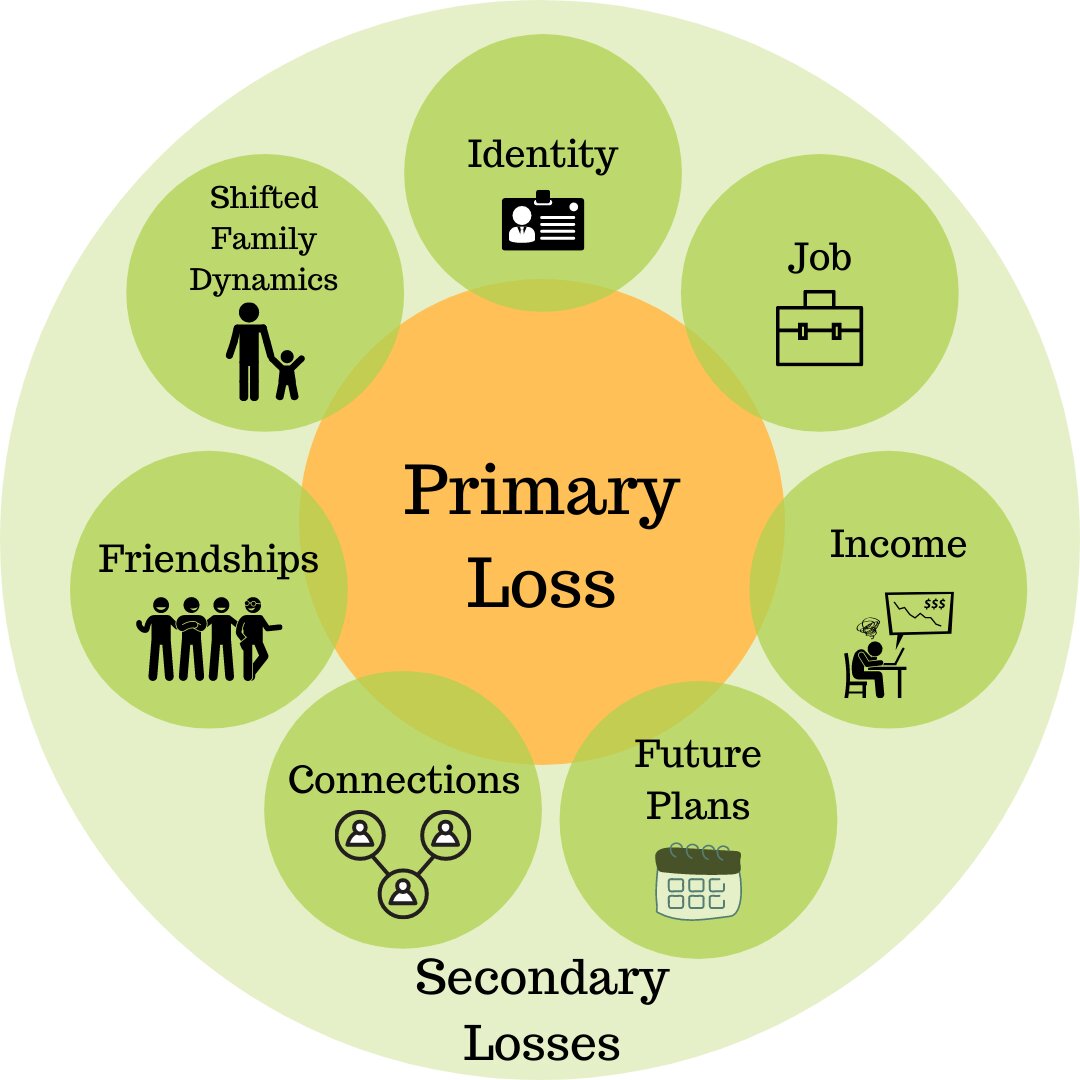Loss is never a simple matter. Each person’s experience of grief and loss is different, and understanding our own responses makes us better able to cope and maintain mental wellness.
Loss applies not only to death, facilitator Karen Simmonds explained during her workshop “The Challenges of Grief and Loss” during the National Virtual Family Forum. We grieve when anything we value – a loved one, our health, our job or expected future – is taken away, or when we face sudden change. These are all situations faced by those who’ve experienced a work accident or illness.
Karen encouraged everyone to draw a circle, writing their primary loss in the centre, and then consider the related secondary losses and write those around the circle’s edge. Those secondary losses could include things like friendships, identity, work, income, family dynamics, community connections and a host of others.

(Source inspiration: whatsyourgrief.
The purpose of the activity, Karen explained, is not to emphasize the amount of loss, but to help us be “aware of the rippling effects of losses in our lives.” When you feel the stress and anxiety of one of those secondary losses, she said, “you can put the connection to it and understand it as part of that deep loss.”
There are connections among grief, anxiety and depression as responses to loss. Anxiety and depression are a natural part of grieving, and depression can even be positive, in that it invites you to slow down. But when the symptoms of depression persist over time beyond a person’s ability to cope and function day to day, it’s time to reach out for help, Karen said.
She offered some small steps to support mental wellness through grief and loss:
- Honour how you have supported yourself so far. Acknowledge the small steps daily.
- Make a promise to yourself around self-care and write it down.
- Look at your support system. Share with someone you trust.
- Listen to your body.
- Speak with your doctor if your symptoms worry you.
- Take 5 to 10 minutes for self-care through the day. With practice, your brain learns to relax.
- Actively mourn your loss.
- The State of Safety in Canada, 2024 - May 23, 2024
- Yes, you are making a difference. Thank you so much. - May 16, 2024
- Meet one of the families you’ll help through Steps for Life - February 1, 2024

 Find Support
Find Support Donate
Donate